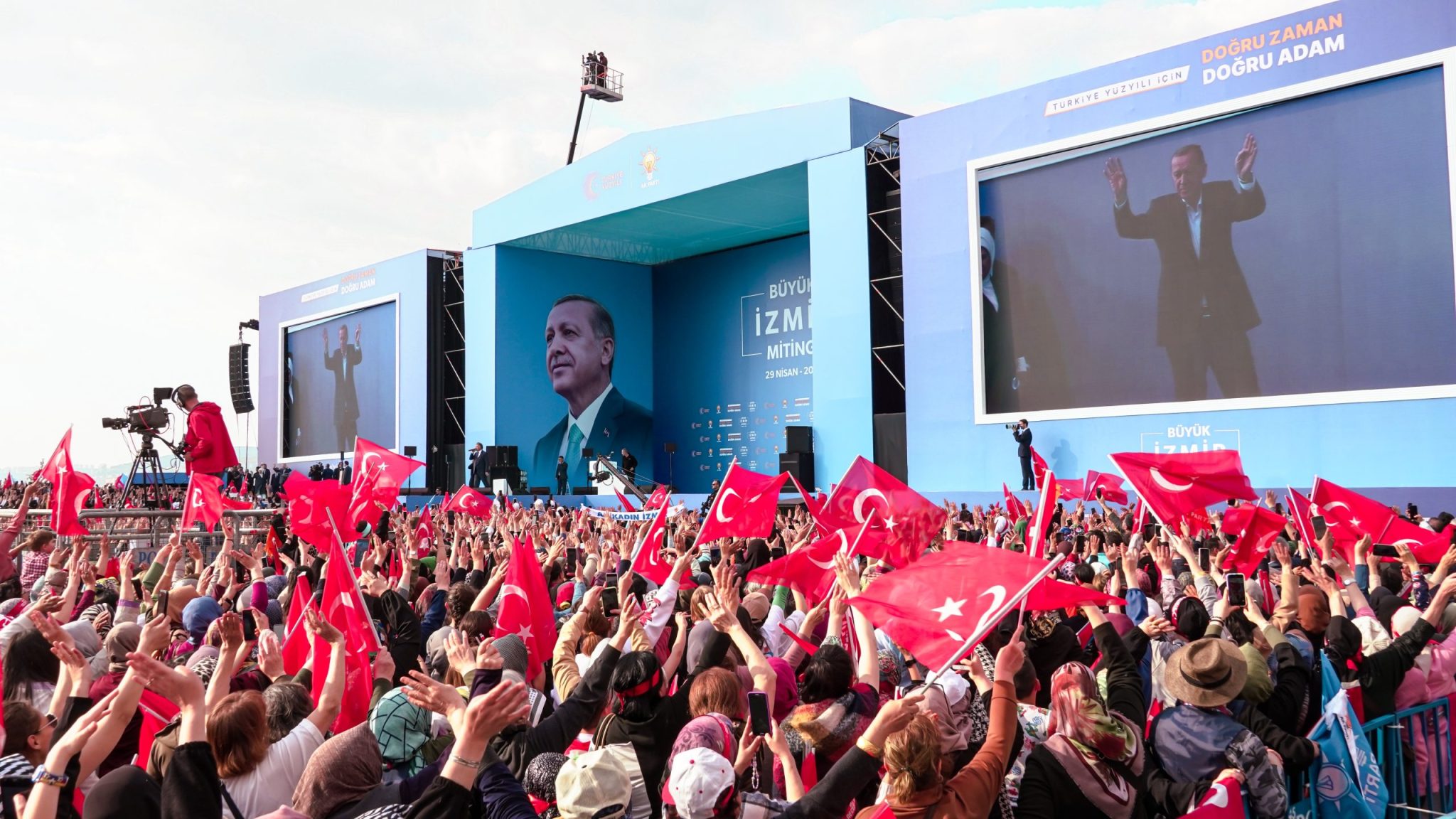What happened in the first round?
In Turkey’s first round election held on May 14, tens of millions of voters turned out for both sides. There was intense competition on a playing field that the incumbent President Recep Tayyip Erdoğan skewed heavily in his favor through autocratic corruption. It was not a fully democratic election.
In the usual parlance of election observation, it was partly free but highly unfair. We can consider it partly free because a) voters were able to submit a meaningful ballot between parties and candidates with markedly different visions for Turkey’s future, b) voting took place without violence or major instances of overt intimidation, and c) observers from civil society organizations and from every party participated in tallying the ballots and reporting the results to the central authorities. It was also partly unfree, given that a) the People’s Democratic Party (HDP) leader, Selahattin Demirtaş, along with many other political prisoners, remains incarcerated, and b) popular Istanbul mayor Ekrem İmamoğlu was forced to run for vice president instead of president due to charges that he insulted the Supreme Electoral Council (YPG).
The election’s unfairness has been palpable. Even when the fundamentals have aligned in favor of the opposition—historic earthquake that damaged Erdoğan’s popularity, runaway inflation, an unprecedentedly united opposition—the incumbent has been able to get more votes by contorting the democratic process so thoroughly that it is not right to call it fully democratic.
The ways in which recent Turkish elections are unfair are discussed in greater detail here, with the leading vector being the regime’s tight control over the news media. Turkish media almost completely ignored the opposition campaigns (state broadcaster TRT devoted 49 hours to President Erdoğan and 34 minutes to challenger Kemal Kılıçdaroğlu over a 41-day period), while also avoiding topics—like corruption, inflation, and the government’s earthquake response—that the regime finds unfavorable. The government’s influence over state media also allowed them to shape the order in which votes were reported, allowing the government to project the appearance of a stronger lead on election night than it actually had. Meanwhile, President Erdoğan and the AKP frequently accused the opposition of having links to terrorist groups, even deploying deepfake videos in support of these claims.
These autocratic efforts contributed to the government’s unexpectedly strong showing on election night, which saw the ruling Justice and Development Party’s (AKP) People’s Alliance win control of parliament, although it failed to win the presidency outright in the first round, with President Erdoğan claiming a 49.2% vote share. Main opposition candidate Kılıçdaroğlu was awarded 45.1% of the votes, with 5.3% going to the nationalist candidate Sinan Oğan.
The extent of unfairness was so severe that Washington Post columnist and CNN host Fareed Zakaria warned, “When elections are held in these circumstances, and international observers duly note that the ballots were properly cast and counted and then certify such elections to be genuinely competition, they are doing the world a disservice. We need a new vocabulary to describe this phenomenon.”
What can we expect in the second round?
The opposition faces an uphill climb in the second round given that they have a four-point deficit to cover, and that the nationalist candidate Oğan has since endorsed President Erdoğan. Still, in a high turnout first round, a majority of Turkish voters cast ballots for candidates other than Erdoğan, despite the torrent of abuse and accusations hurled at the opposition, and the near total control Erdoğan maintains over the media environment. Oğan was widely viewed as a protest candidate, so his voters are deeply skeptical of the regime and may be reluctant to give in and cast votes to reelect the president, even if they are also skeptical of the opposition, which remains ideologically fractured and agrees on little other than that Erdoğan must go.
Given the narrow path to victory for the opposition in the second round, it comes as no surprise that the government is employing all the tricks it used in the first round to great effect. Most recently this includes billboards falsely accusing Kılıçdaroğlu of being backed by the terrorist-designated Kurdistan Workers’ Party (PKK). But we should also be alert for even more egregious tactics that many feared might be deployed in the first round.
One of the most concerning potential escalations from the autocratic toolkit would be the use of violence or intimidation to shape the vote in the run-off. In the week leading up to the first round, pro-regime protestors assaulted opposition staff and supporters at multiple campaign events and faced no condemnation by regime officials. While election day itself was free of bloodshed, tensions are even higher now, and the threat of violence by regime supporters could be used to suppress turnout for the run-off.
Even if there is no violence on election day, the regime could use violence to remain in power if the results of the run-off are unfavorable. This would likely involve claiming fraud, and then using state security forces, pro-regime thugs, or some combination thereof to clear the streets of opposition supporters protesting Erdoğan’s refusal to leave office. Calling his supporters into the streets helped Erdoğan defeat an illegitimate coup attempted by the military in 2016; there is a risk he could attempt to do the same to quash a defeat at the ballot box.
But it is more likely that the second round will be another highly managed process that produces the result that the regime has been working toward. And, tragically, Erdoğan is almost certain to continue refining these autocratic tactics, making it unlikely that he will ever be unseated through a democratic process.
The views expressed in GMF publications and commentary are the views of the author alone.





